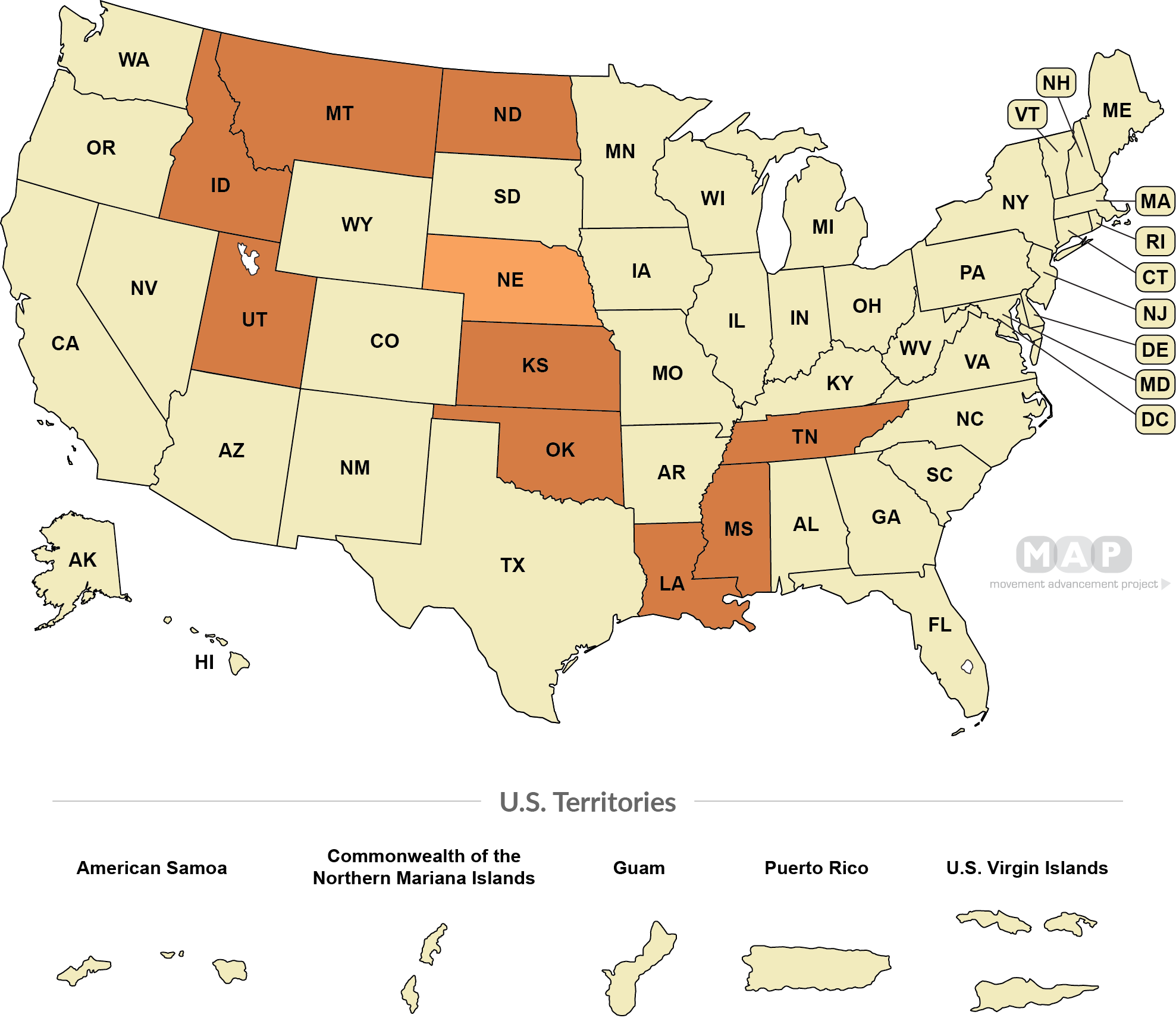As part of a
broader, coordinated attack
on transgender people across the country, these newly emerging laws explicitly regulate gender by defining "sex" throughout all state law to effectively allow discrimination against transgender people. These laws regulate gender and define sex as only male or female, typically based on a person's presumed reproductive anatomy, chromosomes, hormones, or other physical characteristics at birth. These laws also define sex as a permanent category, implying that transgender people's gender identity would never be legally recognized under state law. These laws could have dangerous implications for transgender people when it comes to bathrooms, identity documents, and other areas of law or policy, but because these government gender regulation laws are often vaguely written, the actual impact of these laws remains to be seen in each state.

-
State law explicitly regulates gender throughout state law to allow discrimination against transgender people
(13 states)
-
State executive order explicitly regulates gender throughout state law to allow discrimination against transgender people
(2 states)
-
State does not explicitly regulate gender throughout state law to allow discrimination against transgender people
(35 states , 5 territories + D.C.)
Percent of Transgender Population Covered by Laws
*Note: These percentages reflect estimates of the transgender population (ages 13+) living in the 50 states and the District of Columbia. Estimates of transgender people in the U.S. territories or under age 13 are not available, and so cannot be reflected here. Population estimates are from The Williams Institute.
10 % of transgender people (ages 13+) live in states where state law regulates gender throughout state law to allow discrimination against transgender people
2 % of transgender people (ages 13+) live in states where executive order regulates gender throughout state law to allow discrimination against transgender people
88 % of transgender people (ages 13+) live in states that do not explicitly regulate gender throughout state law to allow discrimination against transgender people


